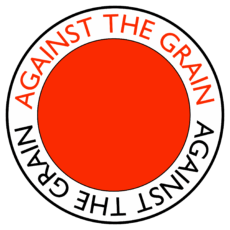Against the Grain – December 18, 2012
The voices of James Baldwin, Audre Lorde, Robert Duncan, Jessica Hagedorn, Langston Hughes, and others who’ve spoken at SF State Poetry Center events, with commentary by the center’s director Steve Dickison.

12:00 PM Pacific Time: Mondays - Wednesdays
Acclaimed program of ideas, in-depth analysis, and commentary on a variety of matters—political, economic, social, and cultural—important to progressive and radical thinking and activism. Against the Grain is produced and hosted by Sasha Lilley.
The voices of James Baldwin, Audre Lorde, Robert Duncan, Jessica Hagedorn, Langston Hughes, and others who’ve spoken at SF State Poetry Center events, with commentary by the center’s director Steve Dickison.
An hour of rubbish: China Miéville discusses garbage and art; Tristram Stuart talks about food waste.
Corey Robin, author of “Fear: The History of a Political Idea,” talks with Sasha Lilley about the ways that fear has been conceived by modern thinkers and the political uses to which it is put.
Radical scientist Steven Rose on the problems with sociobiology, which suggests that human behavior is primarily rooted in our genes, and Ted Nace on a successful grassroots campaign to shut down coal.
Alison Hope Alkon, author of “Black, White, and Green: Farmers Markets, Race, and the Green Economy,” takes a hard look at the idea of the “green economy,” and farmers markets with it — contrasting two markets, one in West Oakland and one in North Berkeley.